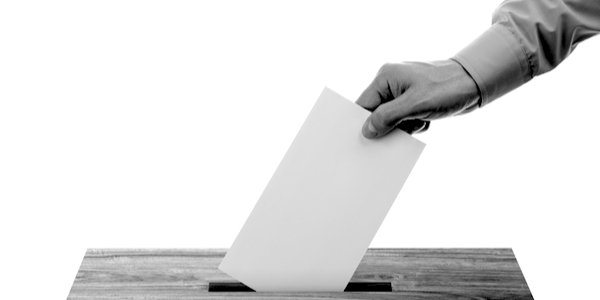ABASHED, perhaps, by their failure to keep crucial pre-electoral promises – to slash energy bills; not to make changes to Agricultural Property Relief; not to raise taxes on ‘working people’ (unless, as it turns out, they are working against social justice by running a small independent business or sending their children to a private school) – the government are determined to stick to their word in one respect at least: they are giving the freedom of the ballot box to 16- and 17-year-olds.
Presumably this is a sop thrown to their disgruntled left-wingers, who will soon, no doubt, be demanding a further reduction in the voting threshold to 14 as proposed by the think-tank Demos in 2003. After all, once the rational boundaries have been transgressed, you can take your pick.
The rational boundaries, of course, are the physical ones inherent in the development of the brain, a process which is not usually complete until the mid-twenties, though this varies from person to person according to life experience. In particular, the prefrontal cortex – the area of the brain responsible for planning and decision-making, the regulation of emotions, the delay of gratification, and impulse control – is not usually fully mature until around the age of 25. William Pitt the Younger, who stood for parliament at 20, gained a seat at 21 and became prime minister at 24, is often advanced as evidence in favour of youthful enfranchisement. He was no doubt one of those whose frontal cortex matured early. We can only hope that this is also the case with the 18-year-old who has just become leader of Warwickshire Council, with its half a billion-pound budget.
But who cares about physical limitations when it’s a question of ideology? If mere biology can’t stop a man from becoming a woman at will, why should they stop children deciding who runs the country, or even running it?
Biology is irrelevant, where equity and social justice are concerned. Sixteen is the age of sexual consent. At 16 young people can leave home. They can choose their own GP and agree to surgical treatment. They can access banking services. They can enter into contracts, with the support of a guarantor. They can even join the armed forces if their parents permit. Why, then, should they be denied the right to vote? Our prime minister’s trump card is the cry of the colonial rebels at the Boston Tea Party: no taxation without representation! If 16-year-olds work full-time and pay their taxes (though not all of them do either), should they not also have their say at elections?
Well, no, actually.
More significant than what 16-year-olds may do legally are those which they may not do, which tacitly acknowledge the fact that a teenage brain is still, most likely, deficient in the crucial qualities of considered deliberation and self-restraint governed by the prefrontal cortex.
It is illegal, for instance, for 16-year-olds to buy alcohol, and they may only drink it in a public place when sharing a meal with adults in a restaurant; nor may a 16-year-old obtain a licence to drive a car on the public highway. Both instances are designed to protect the public from young people who have not yet mastered the impulse to immediate gratification in favour of the long-term view – as is confirmed by the crippling insurance premiums levied on teenage drivers.
If it is considered wise to protect society from the depredations of 16-year-old drivers and drunkards, why on earth should we not also be protected from the danger of elections skewed by 16-year-old voters?
Pre-1969 the voting age was 21. During the 50s and early 60s most young people had been working full-time for at least three years. Many of them were married, and starting families. Few were in education past the age of 18: the majority left school at 15, with most training provided by apprenticeships or on the job. These were people, in short, with far greater experience of life than today’s teenagers; they also paid more tax, yet they waited to vote until after their 21st birthday.
If anything, the Government should be raising the voting age, not merely to 21, but to 25, to take into account the lack of real-life experience resulting from a delayed exit from education and a delayed entry into committed relationships. This would dovetail nicely with biological reality, though not with the requirements of a Government desperate to hoover up new votes, and busy turning the education system into a hive of political propaganda.
As for the unfairness of taxation without representation, Sir Keir, there is an easy solution: just don’t tax teenagers.








